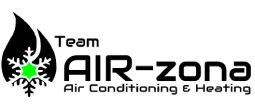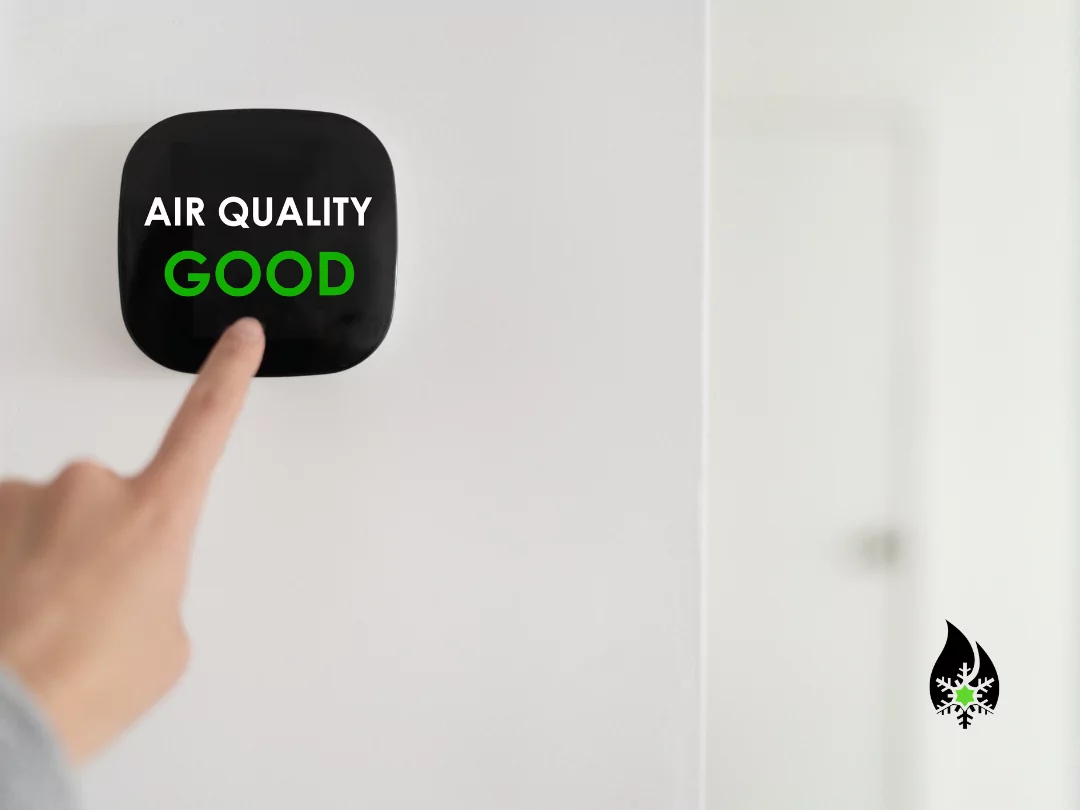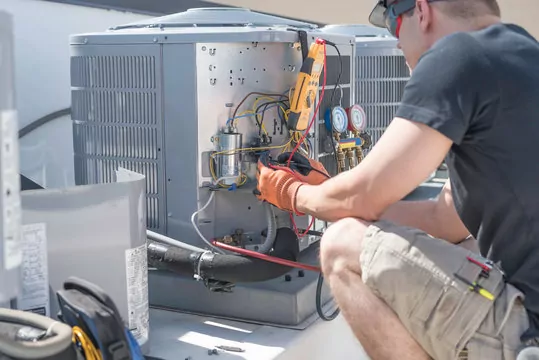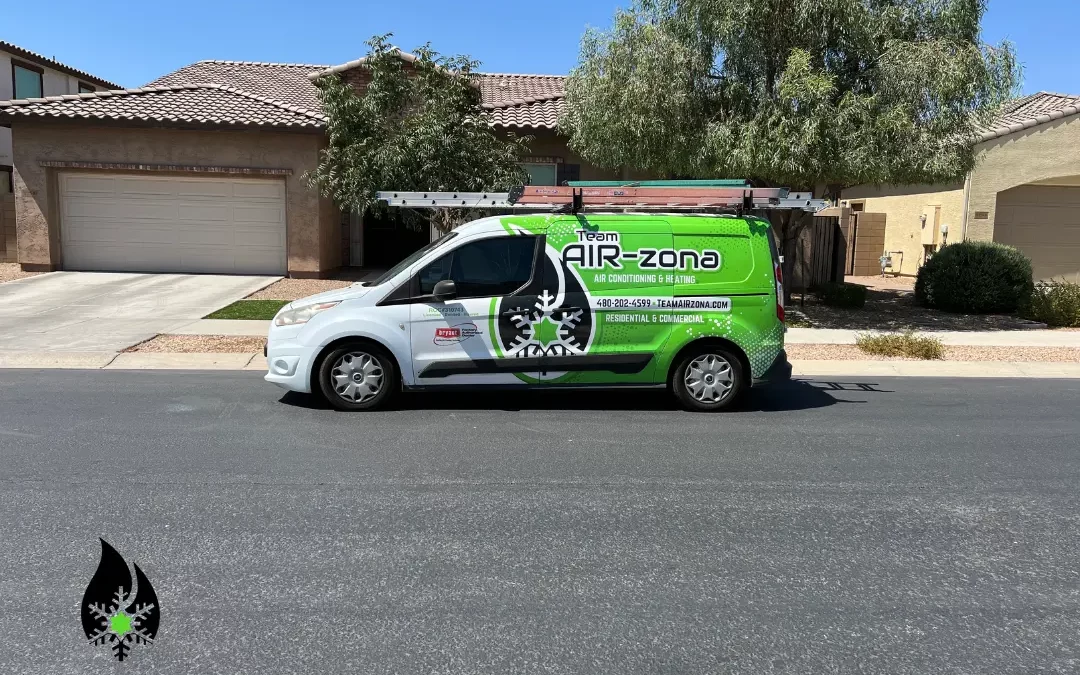Home should be where you can kick off your shoes and breathe easy. Sounds like the American dream, right? But for many, the poor air quality at home can contribute to a range of health problems. Poor indoor air quality can exacerbate allergies and cause respiratory issues. You may be asking, “Why are my allergies so bad right now?” or maybe someone in your family has noticed that their symptoms are even worse at home.
Not only can symptoms like a runny nose and red eyes be uncomfortable, but public health experts are now concerned that pink eye, or conjunctivitis, could actually be linked to a COVID variant. If you’re wondering how to tell the difference between allergies and a cold, here are some simple things you can do today to improve your home’s indoor air quality and protect your health.
5 Ways to Improve Your Home’s Indoor Air Quality
1. Identify the air pollutants in your home.
The first step to improving your home’s indoor air quality is to identify the sources of air pollution inside it. Common indoor air pollutants include:
- Mold
- Dust
- Pet dander
- Volatile organic compounds, or VOCs, from cleaning products and scented items
Once you have identified the air pollutants in your home, you can work to eliminate or reduce these sources. Make sure to clean high-traffic areas in your home that might collect outside dirt and pollutants, like entryways, spaces for shoes and jackets, or the kitchen. Don’t neglect to clean the low-traffic areas that might attract dust, like ceiling fans, bookshelves, or light fixtures. Groom your pets and vacuum carpeted areas frequently to manage pet dander allergens. Avoid artificially scented candles, air fresheners, and industrial cleaners.
2. Invest in an air purifier for sleeping areas or high-volume spots.
Invest in an air purifier for your bedroom to improve your home’s indoor air quality and help you sleep better at night. Air purifiers with a HEPA filter can catch even the smallest air pollutants, like allergens, mold spores, pollen, and bacteria. Some air purification systems come with UV-C technology, which zaps harmful viruses and germs.
3. Manage the humidity levels in your home.
Improving the indoor air quality of your home depends more on humidity levels than you think! High humidity can promote mold growth and attract dust mites. As homeowners in Arizona, you probably know how harsh the dry climate can be on your respiratory system. Low humidity levels can highlight a dry cough and worsen dry skin. Use a humidifier or dehumidifier to achieve a humidity level between 30 – 50% for optimal indoor air quality.
4. Pay attention to ventilation.
If you want to improve your home’s indoor air quality, ventilation is key! Open doors and windows to get some fresh air when the weather permits. If you’re worried about air quality alerts in your area, check with your favorite weather app for the local air quality index first. Take advantage of exhaust fans in your kitchen and bathroom to remove moisture, unwanted odors, and pollutants.
Check your HVAC air filter regularly for dust mites, smoke particles, and other irritating pollutants. After 30 days, clean or replace your air filter to maintain optimal freshness. At Team AIR-zona, we like to make it a little easier for our customers with a range of options! Our air purifier cartridge and EZ Flex filter only require service every six months, while our UV Lamps and Humidifier Pads only need to be replaced annually! It may seem like an investment, but paying attention to proper ventilation will contribute to cleaner, fresher air in your home.
5. Maintain your HVAC system and improve your home’s indoor air quality with Team AIR-zona.
If it seems like you’ve tried everything to improve your health, but you’re still experiencing poor sleep, allergy flares, respiratory problems, and other health issues, it could be as simple as the air you breathe! By identifying and eliminating household air pollutants, investing in an air purifier, managing humidity levels, paying attention to ventilation, and checking in with Team AIR-Zona’s regular HVAC maintenance plan, you can breathe easy knowing that your home and those in it are safe and healthy.
Note: If you suspect your red, irritated eyes are a symptom of conjunctivitis and not household allergens or seasonal allergies, you may want to contact your doctor for an antibiotic. An antibiotic can help manage symptoms and reduce complications, but a cold compress and lubricating drops can be an effective at-home treatment.
Our HVAC experts care about your home’s indoor air quality.
Your HVAC system plays a critical role in maintaining the indoor air quality of your home. Contact us for more information about our HVAC maintenance plans or to schedule a comprehensive air quality assessment.
Team AIR-zona is proud to provide same-day emergency HVAC repair, upfront pricing, and Medal of Excellence award-winning customer service. Our experts can help you find the air quality improvement product that fits your needs, lifestyle, and budget.
Team AIR-Zona can help you breathe fresh air into your home today!





